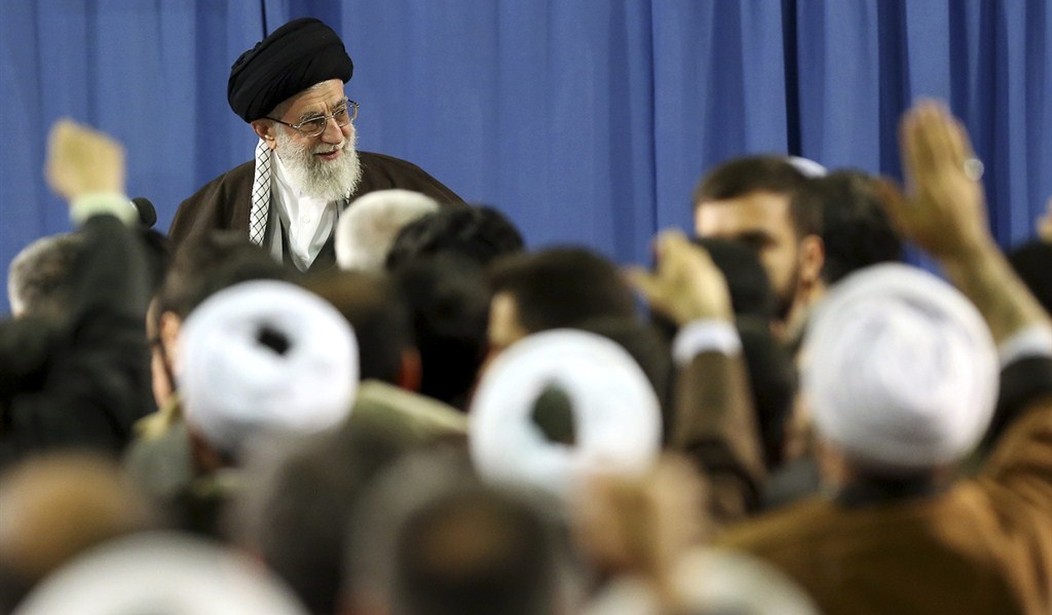If you're just joining the Iran negotiations debate, let's bring you up to speed: The Obama administration and international partners struck an interim deal with the regime in Tehran in late 2013, the ostensible purpose of which was to "freeze" Iran's rogue nuclear program while affording more time to hammer out a lasting agreement. Iran cheated, eliciting excuses from the White House. Iran also violated other existing international obligations related to weapons procurement as talks were underway, a fact that has been largely shrugged off. A preliminary framework for a final accord was announced this spring, with US officials extolling it as a tough agreement that would significantly delay Iran's so-called "breakout" capabilities. Iranian officials responded by rejecting the State Department's 'fact sheet' summary of the agreed-upon terms, insisting that core American demands on inspections and sanctions relief were overstated in the document. This further alarmed critics who already viewed the West's apparent concessions as a dramatic climb down from established US stances on a host of issues -- from "ending" Iran's nuclear program, to the continued use of secret underground enrichment bunkers, to the testing of advanced centrifuges. In addition to unleashing a series of goalpost-shifting, eleventh-hour demands, Tehran insisted that international governments lift all nuclear-related sanctions immediately upon the completion of an accord. The regime's defense minister added that inspectors will not have unfettered access to certain military sites. The country's 'supreme leader' evidently agrees:
Iran’s supreme leader on Wednesday ruled out inspections of Iranian military sites and interviews of Iranian nuclear scientists in any potential deal on its nuclear program...After the last round of talks ended on Friday, a barrage of complaints erupted on the Iranian state news media over reported demands by the United States for broad mandates for nuclear inspectors working for the United Nations nuclear watchdog. The comments by Ayatollah Khamenei seemingly cement the Iranian position that a requirement for inspections of sites not designated by the country as part of its nuclear energy program is a nonstarter. While not new, the statement could further tie the hands of Iran’s negotiating team, led by Foreign Minister Mohammad Javad Zarif, who on Friday said that a comprehensive deal before the self-imposed June 30 deadline was still possible.
If Iran manages to secure an agreement that entails unconditional sanctions relief and limits inspections to pre-approved, designated sites, the accord would no longer be a bad deal. It would be an abject capitulation. Let's recall that two different reports released in the last month have cited evidence of ongoing nuclear cheating by Tehran, that "snap-back" sanctions are a pipe dream (a reality helpfully confirmed by the Russians), and that President Obama has effectively conceded that even if Iran abides by the deal, they'll be a threshold nuclear power just as soon as Western restrictions expire in a little over a decade. Oh, and
Recommended
Saudi Arabia and many of the smaller Arab states are now vowing to match whatever nuclear enrichment capability Iran is permitted to retain. “We can’t sit back and be nowhere as Iran is allowed to retain much of its capability and amass its research,” one of the Arab leaders preparing to meet Mr. Obama said on Monday, declining to be named until he made his case directly to the president. Prince Turki bin Faisal, the 70-year-old former Saudi intelligence chief, has been touring the world with the same message...“Whatever the Iranians have, we will have, too,” he said at a recent conference in Seoul, South Korea.
It's almost as if events and actions are vindicating virtually every major fear raised by opponents of the deal. But ephemeral 'legacy' enhancements are more important than realities to some people, it seems. Others have more concrete and lasting concerns:
























Join the conversation as a VIP Member